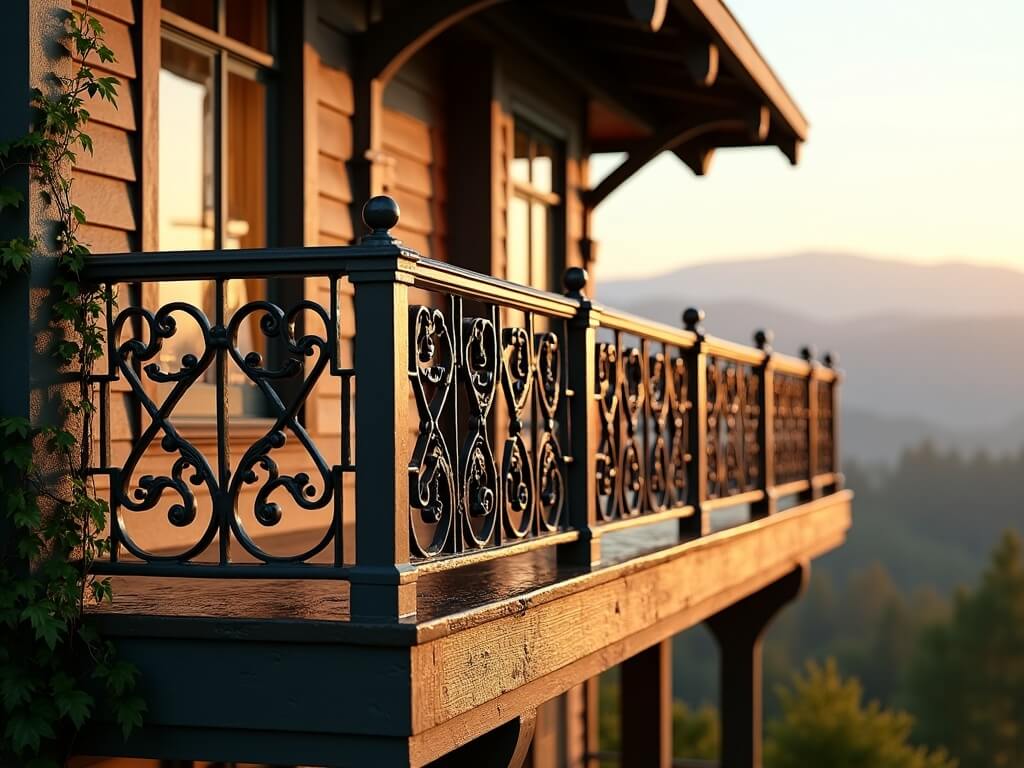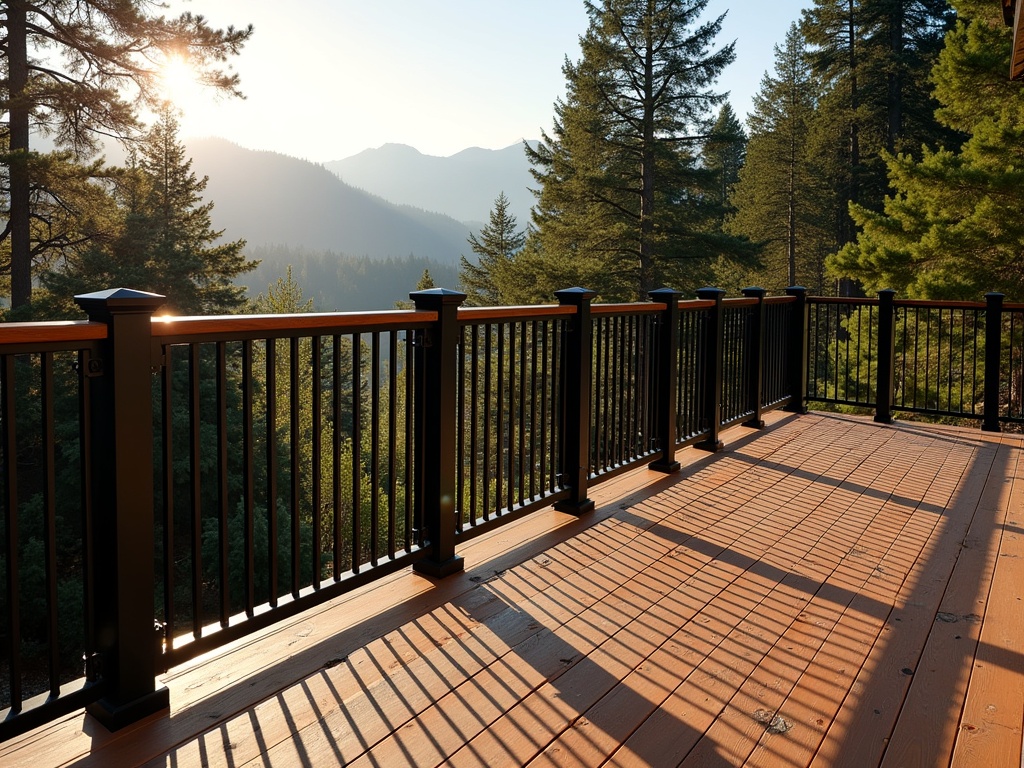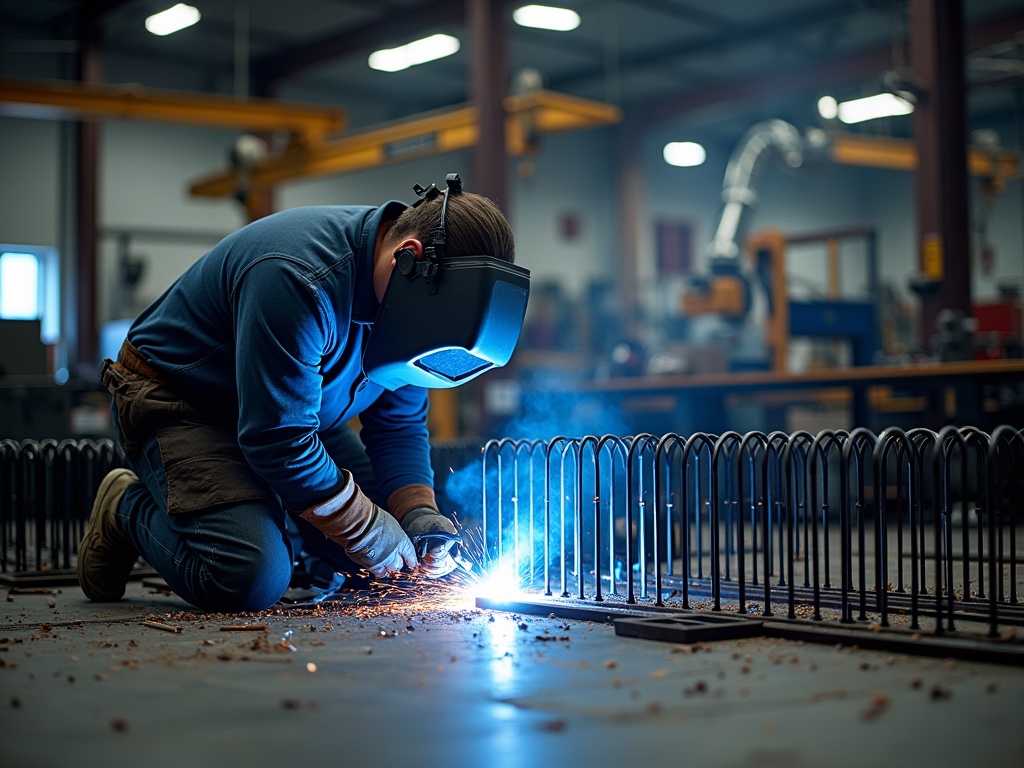Custom Ironwork and Metal Railing Installation: Finding the Best Ironwork Company Near You in Snoqualmie
Custom ironwork in Snoqualmie offers unmatched safety, durability, and style—tailored precisely to your space and built to withstand local weather and code demands, making it a smarter long-term investment than prefab kits. From decks and balconies to gates and fences, expert-crafted metalwork enhances property value, ensures compliance, and delivers lasting peace of mind.

Every week, I get calls from homeowners in Snoqualmie asking the same thing:
“How do I make my porch look great and still meet code?”
Or: “My deck railing’s rusting out—can you fix it, or do I need to rip everything out?”
Custom ironwork isn’t just about looking fancy. It’s about building something that lasts, fits your space exactly, and won’t buckle under pressure—literally or financially.
Let’s break down what really matters when it comes to custom ironwork and metal railing installation in Snoqualmie, WA, starting with what it even means to go “custom.”

Why Custom Ironwork Is Worth It (It’s More Than Just Pretty Metal)
Custom ironwork means your metal features—whether they’re railings, gates, stairs, or fences—are designed for your exact project.
That means no weird gaps, no forced angles, no pre-cut parts from who-knows-where.
It includes:
- Fabricating each piece from raw steel or iron to match your space
- Welding on-site or in-shop by a professional team
- Tailoring the finish (powder coat, galvanized, brushed steel) for your climate
This stuff isn’t just about looks. It’s structural integrity.
You’re dealing with real safety standards: railing height, picket spacing, ADA compliance, and more.
I’ve seen too many prefab kits sag and rust within a year because they weren’t built for Snoqualmie’s rainy climate or shifting soil.
Real custom ironwork is functional design.
And when it’s done right, it increases your property value, makes your home or business safer, and holds up—storm after storm.
Where Is Custom Ironwork Actually Used? (Spoiler: More Places Than You Think)
You’ve probably noticed it on staircases and decks. But here’s where I’ve installed it just in the last six months around Snoqualmie:
- Perimeter fences for schools and clinics
- Dual-purpose stair railings that double as planter frames
- Interior bannisters with cable and steel mixes
- Balcony safety rails up to 30 feet high
- Ornamental security gates (yes, they can be beautiful and secure)
I once installed hammered steel entry railings for a 100-year-old craftsman remodel. We custom-aged the patina to match the original window grilles—it looked like it had always been there. Client almost cried.
Point is, custom means limitless applications.
Quick Summary: Custom ironwork isn’t just about style—it’s precision-built for safety, durability, and value.

Why Snoqualmie Projects Need Something Stronger Than Stock Railings
This area’s not Seattle-flat. You’ve got hills, mud, rainfall, wind gusts—and more HOAs than you can shake a tape measure at.
Custom iron or steel works better here because:
- We can adjust for uneven foundations and complex grades
- Finish coatings can be upgraded for added weatherproofing
- Local contractors (like us) already know code enforcement officers and what they ask for
Trust me, you don’t want an inspector pinging you for 1-inch spacing issues or railing height being an inch too low.
Several years ago, I had a deck railing project delayed because the national prefab company didn’t include right-angle corner posts—just straight runs. The homeowner ended up spending double after we had to replace it with a properly welded structure.
Lesson learned? Always go local and custom when reliability matters.
The Takeaway: Snoqualmie houses need stronger, better-adapted metalwork than most kits can provide.
Breakdown: 5 Common Types of Metal Railings (And When to Use Each One)
Not all metal is forged equal.
Here’s what we work with most often—and why you might or might not want each:
1. Wrought Iron
Most traditional-looking, great for ornamental projects. Heavy, but extremely durable.
2. Stainless Steel
Sleek, low-maintenance, modern. Good for balconies and commercial interiors.
3. Powder-Coated Steel
Cost-effective with weather-resistant finish options. Great for decks, exterior stairs, gates.
4. Aluminum
Lightweight, rust-resistant, better for basic railing needs. Not ideal for high-impact zones.
5. Cable Rail with Metal Frames
Minimalist, open-view style, popular with modern homes. Requires tensioning and careful install.
Quick Tip: Ask your installer what finishes and shapes fit your location and code zone. There’s no one-size-fits-all.
Metal Railing Installation in Action: The Real Process (Not Just Theory)
People always underestimate how involved a railing project is—until they’re halfway through and stuck waiting on parts.
Here’s the real workflow when handled by pros:
- Site visit: Taking measurements, notes on slope, materials, sunlight exposure
- Consultation: Design selection, code compliance checks, HOA submittals if needed
- Fabrication: Plasma cutting, hand-welding, finishing in a dedicated metal shop
- Delivery and installation: Anchoring, bolting, custom-fit corner work
- Final walkthrough: Ensure welds are clean, spacing is code-compliant, everything’s secure
We also give clients a simple maintenance guide. Stopping one rust bubble early can save hundreds later.
Key takeaway: A top-tier railing install isn’t just about fast labor—it’s about tight detail, precision welds, and trusting folks who work with steel daily.
Safety Codes and Rules Too Many DIY Projects Miss
If you live in Snoqualmie and you install your own railing with a few deck screws and a vision board… you might be asking for a failed inspection.
Here’s what professional installers build around by default:
- IRC code: Standard US residential construction codes (guard height is 36-42 inches, vertical opening not >4 inches apart)
- ADA guides: For ramps and accessible spaces, especially in rentals or multi-family homes
- HOA restrictions: Finish color, height uniformity, even design style in some neighborhoods
The scary thing? A lot of prefab or big-box railings say “meets most standards,” but when we show inspectors the actual specs, they shake their heads.
At Local Metalwork, we’re licensed, bonded, and insured. We also know Snoqualmie’s code enforcement team by name—not because we bribe them, but because we know how to meet expectations without cutting corners.
Summary: If your railing won’t pass inspection or isn’t safe—it’s just decoration. Don’t risk it.
How to Keep Your Ironwork Looking Great For Years (Not Just a Season)
Metal breaks down—eventually. But you can control how fast it happens.
Here’s how I tell my clients to get 10+ years out of a solid install:
- Spray it off once a season. Debris holds water which accelerates rust.
- Inspect weld points and anchor bolts yearly.
- Keep bushes, grass, or vines from touching the railing if outside.
- Touch up paint or powder chips before they become rust pits.
One client had us install a wrought iron balcony setup, but didn’t realize their lawn sprinkler was hammering it every morning for six months. Result? Paint peeled, rust set in, and we had to strip and refinish the whole thing.
Now? We recommend water-resistant primers even under powder-coat in areas facing irrigation.
Bottom line: The right ironwork takes care of you, but you have to return the favor with simple upkeep.
Coming up next, we’ll cover how to find the best ironwork company near you—and what to ask before signing a single contract.
Looking for more design inspiration? Check out our post on custom ornamental ironwork for unique railing and gate ideas in Snoqualmie homes.
How to Choose the Right Ironwork Pro (Even If You Know Zero About Metal)
Not all ironwork companies are created equal.
Some will promise you “custom” and then show up with catalog parts and a spray can. Others skip crucial welds and hope no one notices till the project’s done.
Here’s how I tell people to separate a true expert from a guy with a truck and a torch:
Ask these 5 questions before signing anything:
1. Can I see a portfolio of similar projects in Snoqualmie?
If they’ve never worked with our slopes, codes, and weather—you’re the guinea pig.
2. Are you licensed, bonded, and insured in Washington state?
This isn’t optional. Protection matters in case something fails later.
3. Will the work be fully custom—even fabrication and finish?
If they’re ordering prefab rails, they’re not adding value. Local shop welding = real custom.
4. How do you handle building codes and HOA restrictions?
We submit designs as needed for pre-approval. Your contractor should too.
5. What’s your warranty or support policy post-install?
A real pro will always stand behind their work. We offer support long after install.
You also want a crew that communicates clearly—and actually shows up when they say they will.
A guy once called us in a panic: his “contractor” missed three install dates and didn’t return calls. We had to step in, redo everything correctly, and rush fabrication to save his closing date.
Don’t let that be you.
Key takeaway: Vet your metal contractor like you’d vet a builder. Ask tough questions. Good pros welcome it.

Prefab Railing Kits vs. Custom Iron — The Cost Truth No One Tells You
Big-box railing kits look like a deal—until they aren’t.
Here’s what most Snoqualmie homeowners figure out the hard way:
A $2,000 prefab kit can easily end up costing more than a $3,500 custom install.
Why?
- Hidden labor (tricky cutting + re-fitting bad angles)
- Wrong sizes (especially on hills or old homes)
- Long shipping delays or backorders
- Failed inspections that trigger tear-outs
I had a recent job where we had to rip out a $1,600 aluminum kit because the pickets were ½ inch too far apart.
The county flagged it immediately.
We installed powder-coated steel with correct spacing… and it passed in one inspection.
Lesson: You’re not just paying for material. You’re paying for design precision, local code alignment, and long-term peace of mind.
Quick cost tip: For most homes, custom exterior railings start around $150–$200 per linear foot depending on material and finish.
But unlike kits, they don’t need replacement in five years.
Pros and cons of custom vs prefab in 20 seconds:
Custom Ironwork
- Precision-built for your unique space
- Passes code and HOA rules the first time
- Built to last over a decade with proper care
Prefab Kits
- Cheaper up front but risky on older or sloped homes
- Limited style and material options
- Harder to modify or repair if anything goes wrong
Summary: Custom might cost more on Day 1—but over 10 years, it saves big.

Straight Talk: What Most Homeowners Ask Before They Start
Over hundreds of railing calls, I hear the same concerns come up again and again.
Here’s straight answers—no fluff:
How long will it take?
- Site visit to final install: Typically 2–4 weeks.
- Faster if we prefab in-shop, but it depends on weather and finish.
How do I get a fast quote?
- Text us pictures of the space, length of railing needed, and whether it’s for stairs, a deck, or balcony.
- We’ll give you a ballpark within 24–48 hours.
- Call us directly at 1-844-741-4766 to get started faster.
What railing designs are popular right now?
- For rustic homes: hammered wrought iron with bronze matte finishes.
- For modern builds: clean steel lines with cable inserts.
- For family decks: powder-coated steel for strength and rust protection.
Are these railings safe for kids and pets?
Yes—but only when installed to code.
- Picket spacing must be under 4 inches.
- No horizontal rails where kids can climb if that’s a concern.
- We always check with parents and pet owners before finalizing design.
Do I need a permit?
- In most cases, yes—especially for new builds, decks, or balcony railings.
- We help you with drawings and permit submittals so it’s painless.
Last question: is custom worth it?
Every client I’ve had who went custom has never looked back.
The house looks better.
It’s safer.
And it doesn’t rust or bend when weather hits hard.
Recap: You’re not just buying a railing. You’re investing in safe, lasting structure.
Trend Watch: Where Ironwork is Going—and What’s Coming for Snoqualmie Homes
Styles evolve. But good fabrication lasts.
Here’s what’s big now—and what’s next:
Hot right now:
- Clean-line cable railings with black steel frames
- Mixed wood-and-metal designs for decks and porches
- Matte powder-coat finishes that hide water spots and smudges
Coming up:
- Invisible fasteners and hidden mounts for ultra-clean look
- Smart lighting integrated into post tops
- Sculptural railing infills (we recently did one with local mountain cutouts!)
Snoqualmie-specific trend:
Because outdoor living is big here—and so is safety—we’re seeing a move toward:
- Raised decks with full-height glass + iron safety rails
- Ornamental gates on private drives (with keypad access)
- Reinforced fencing around steep-grade areas and ravines
Fun bonus: More locals are contacting us to restore historic or vintage metalwork from older homes—replicating century-old patterns with modern techniques.
Finish strong takeaway: Trends come and go, but structural steel with smart design will always win over time.
Final Word: Strong Design. Safer Homes. Iron That Lasts.
Whether you’re building a new deck, upgrading a stair rail, or adding perimeter gates—custom ironwork is less about “fancy” and more about trust.
You want railings that don’t wobble.
Finishes that shrug off Snoqualmie rain.
Installs that pass code—and pass the vibe check too.
So what now?
- Take 3 photos of your railing area
- Estimate your project line length (even if it’s rough)
- Call us at 1-844-741-4766 or fill out the quick form online
Within a day or two, you’ll have a quote, a plan, and a real expert you can talk to—no bots, no pressure.
Bottom line: Whether you're looking for beauty, safety, or long-term value, nothing beats high-quality, professionally installed custom ironwork in Snoqualmie.
Explore more on custom metal fabrication and iron deck railing styles.
Stay informed with metal railing maintenance tips for long-term durability.
Need service beyond Snoqualmie? Check out Professional Ironwork Services in Issaquah.
LET'S MAKE SOMETHING GREAT TOGETHER
Contact us today to discuss your custom metalwork project in Kent, SeaTac, Renton, Newcastle, Bellevue, or anywhere in greater Seattle.
Our friendly and knowledgeable team is ready to guide you through the design process, provide a detailed quote, and bring your vision to life. Let us help you create a lasting legacy of beauty and functionality for your residential or commercial property.

.avif)




.svg)